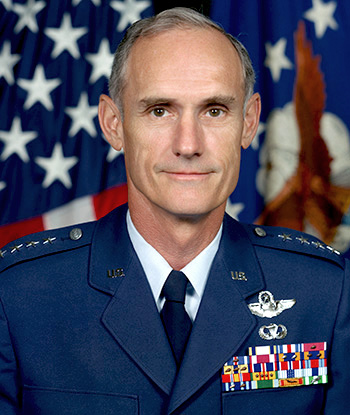Thursday, April 9, 2015
"Perhaps the Time Has Come to Reinstitute an Old Custom - Grant Them TQM"
"Total Quality Management (TQM)."
TQM is an old Air Force custom and one I was taught in my cadet days twenty plus years ago. The Air Force raved about TQM and process improvement, borrowing the philosophy from Japanese business as a way to increase efficiency. The concept of TQM took on joke status among many in the service, and as leadership changed this pre-911 philosophy was sent to the bone yard. General Merrill McPeak, then CSAF, was besmirched for his silly view of how the air service should do business.
I thought it was a good idea, and in my young mind it was obviously the way to do business. It championed a methodical approach to a problem or process, one where data was captured, truth was bracketed, problems were identified and route causes investigated and diagrammed. It cut through the nonsense politics and personal agendas that drive so many decisions in the service with mission and people degrading consequences. TQM was a philosophical approach that led to solutions being debated, and processes improved, with the overall goal to increase mission effectiveness and lessen the amount of work required to sustain that improved mission product.
The changing Air Force disagreed and the concept of TQM was rarely mentioned after I commissioned. That wasn't the only thing to change. Several years later, the events of September 11 changed just about everything in the service. One of those things that changed most was the ops tempo. While the slogan "Do More With Less" did not change, the "More" actually did become more, and the less actually did become less. Less time, more requirements. Enter resiliency.
Enter the region of reverse command at an organizational level.
Improving processes and streamlining them and making the mission more efficient while requiring less energy, may have seemed simply an upfront expenditure of short term energy for a long term unnecessary goal. Back before the Twin Towers were attacked. But it damn sure doesn't seem unnecessary now. Rather than engage in process improvement back in the fat relatively peaceful days, like storing up for a winter, our service squandered an approach that would have served our combat service well today.
Now people are swamped, over worked, and often simply want to endure an eight to ten to twelve hour day with their presence rather than using that time to improve the process and give themselves more wiggle room to work less in the future while still producing better results. They have their heads barely above water and they're just trying to stay afloat.
Like an aircraft in the region of reverse command, flying slower but burning more energy in the form of jet fuel. If the aircraft can just accelerate enough to plane the nose over, it can actually fly faster, with better performance, and also save gas and cost while doing so. But it takes a bit of extra energy in the beginning to make that happen. Many in the service today don't have that extra energy, or at least don't think they do.
Or, more often, they think if they put in the extra work they won't get to save gas. They'll just be asked to fly even faster where they are burning more gas than they were in the region of reverse command, so what's the point of working harder in the short term? They're often not wrong. More claims from above of the mystical packing ten pounds in a five pound sack do not encourage process improvement.
What TQM would have taught us is that we shouldn't measure our productivity by the gas we burn, but by the speeds we achieve while saving gas. A well functioning organization that inspires creativity and rewards mission accomplishment, along with process improvement and mission enhancement, by allowing service members to share in the fuel savings (their time) wins on both fronts. The mission improves and people have more time for things like, oh I don't know, doing the only things that actually truly make people more resilient and happy. Things like a social or family life and rest and activities that do not require a reflective belt or a computer monitor.
Sadly, many times in my career, I have noticed that those who most tout "improving" something are not actually trying to improve anything other than the perception that they improved something translated into a career rewarding performance report bullet. Change for change's sake. It's all over our Air Force and the results cannot be missed as A is changed to B, and B is changed back to A, and repeat and repeat. TQM training would actually give those desiring to improve processes the tools to rationally do so if they were actually interested in improvement beyond their promotion chances.
There are few of us left in the service who have even heard of Total Quality Force Management. But there are many who are interested only in the perception of improving things. And many others who just want to show up and get it over with until they can get out of what is deemed a sinking ship, to go seek greener pastures.
If we can ever get some breathing room back, I think it's time for the Air Force to reinstitute an old custom. Grant them TQM.
Subscribe to:
Post Comments (Atom)





No comments:
Post a Comment